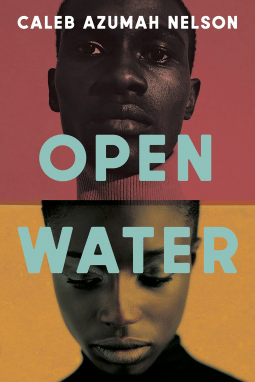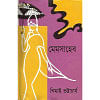Second person narratives: A universe unexplored

As a bibliophile, you cannot help but feel like Rory Gilmore when she says, "I've read 300 books in my entire life, and I'm already 16?"
You cannot reach the expansive world of literature quick enough.
When it comes to books, there are numerous mediums, styles, and genres to experiment with—both in terms of reading and writing. One of such is second-person narratives. It is my favourite kind of literary style to read and interact with. The use of the word "you" makes you feel as if the writer has personally drafted the story for you. A letter to the reader, perhaps. It feels deeply personal and intimate, and you cannot help but binge-read the minute you come across a novel written in the second person. However, a lack of community for second-person narratives makes you feel like such novels do not wholly get the recognition they deserve. The hypnotic world of such books is too powerful for you to find your way out once you are in. So, listed below are three books that are about to change your world for the better.
Notes on an Execution (William Morrow, 2022)
Danya Kukafka

"Though you refuse to look at the clock on the wall, you can feel them ticking by, slipping effortlessly from the room. Those seconds. You want to hold on to each one, to feel the texture of your life as it slinks regretfully away."
The clock is ticking as the central character of the novel awaits his execution. Notes on an Execution is about Ansel Packer and the women whose lives he either took or left a print on—his mother, his wife's twin sister, and a detective. As a result, we see a timeline of tragic events that mould Packer into the person he is today. With an emphasis on telling the stories of the women Packer was associated with, we get a story that is very unlike your typical serial killer novels.
In the novel, Packer's chapters are written in the second person, whereas the rest of the chapters are written from an omniscient third-person point of view. This mixture of narrative style pulls the readers in while also managing to push them away in a way that keeps them turning the pages for more. The novel is as compelling as one can get. It makes the reader question human nature and psyche, which eventually leads to the big question—does our past really bring about who we become in the future? The immersive language and phrases used in the novel truly kept my (extremely short) attention span tethered to the pages. This, I must admit, was quite refreshing. I would definitely recommend this to readers of psychological thrillers wanting to take a trip into the world of second-person narratives.
The Light We Lost (G.P. Putnam's Sons, 2017)
Jill Santopolo

"If you died, I realised just then, it would mean that I'd be the keeper of our memories. I'd be the only one on Earth who had experienced them."
Imagine having the honour to read a very intimate love letter, which also happens to be 300 pages long. The Light We Lost is about Lucy and Gabe, who first meet during 9/11, and from there continue their story of ambition, dreams, love, and of course, heartbreak and betrayal. With both characters being equally career-driven, the book poses the big question of how far we are willing to go to leave the world a better place than how we found it.
While this novel is not a typical second-person narrative book, it captures the essence of what it is like to read one. In The Light We Lost, Santopolo combines the unique qualities of both the first and second person. The novel is written as if the main protagonist, Lucy, is writing a love letter to the one man both her heart and mind can't let go of even after several years have passed. She refers to him as "you" throughout the novel, which makes reading it an even more intimate process. In doing so, we get a front-row seat to their love story from the day the seed is planted till the tail end of its life.
I will warn you beforehand, however, that if you add this book to your TBR, prepare yourself for emotional destruction. Santopolo's writing, along with the plot of The Light We Lost, will have your heart throbbing and aching at the same time. You will feel one with the characters and go up and down the rollercoaster they call life.
Open Water (Viking Press, 2021)
Caleb Azumah Nelson

"You dance through topics like two old friends, finding comfort in a language which is instantly familiar. You create a small world for yourselves, and for you both only, sitting on this sofa, looking out at the world which has a tendency to engulf even the most alive."
Open Water is about two friends falling in love—cautiously and graciously. Sharing a similar background in terms of race, education, and career, the two central characters have a bond that is hard, if not impossible, to find. Both of them are aware of how rare it is to find someone who feels like your person deep in the soul. However, finding that person does not mean that you have reached the destination—finding the right time and place matters too.
I will start by saying that there is no other novel as binge-able as this one. With less than 150 pages, you will not be able to put down this book, and neither will you want to. Moreover, this novel is the epitome of second-person narratives. While Notes on an Execution and The Light We Lost incorporated two narrative styles into the story, Open Water is written entirely in the second person. Not to mention, the "you" in the novel is so cleverly used that every sentence and word feels like a gut punch. Nelson goes so far as not to name the protagonist of his story—not even once. He strictly refers to him as "you" and carries on as such till the last page of the novel.
While the novel seems to be about two people falling in love on the surface, it is so much more than that—and I don't say this lightly. Written in lyrical prose, the novel approaches topics such as identity, race, and masculinity in a way that will surely move you. Like a masochist, the emotional impact this novel will have on you will have you Googling "Books similar to Open Water" (speaking from experience).
With that, I leave the ball in your court.
Rubina Nusrat Puspa is an aspiring writer whose aspirations die a quick and painful death the minute she sits in front of her laptop. Send prayers, good wishes, and kind words to her on Instagram at @rubeyynah.

 For all latest news, follow The Daily Star's Google News channel.
For all latest news, follow The Daily Star's Google News channel. 







Comments